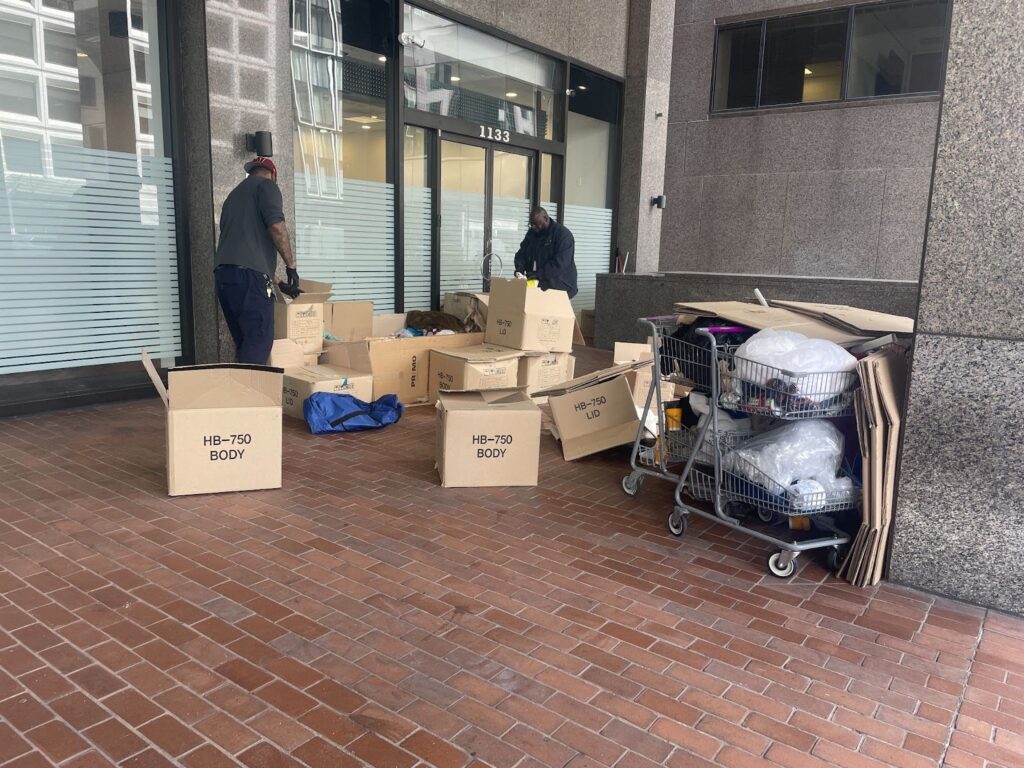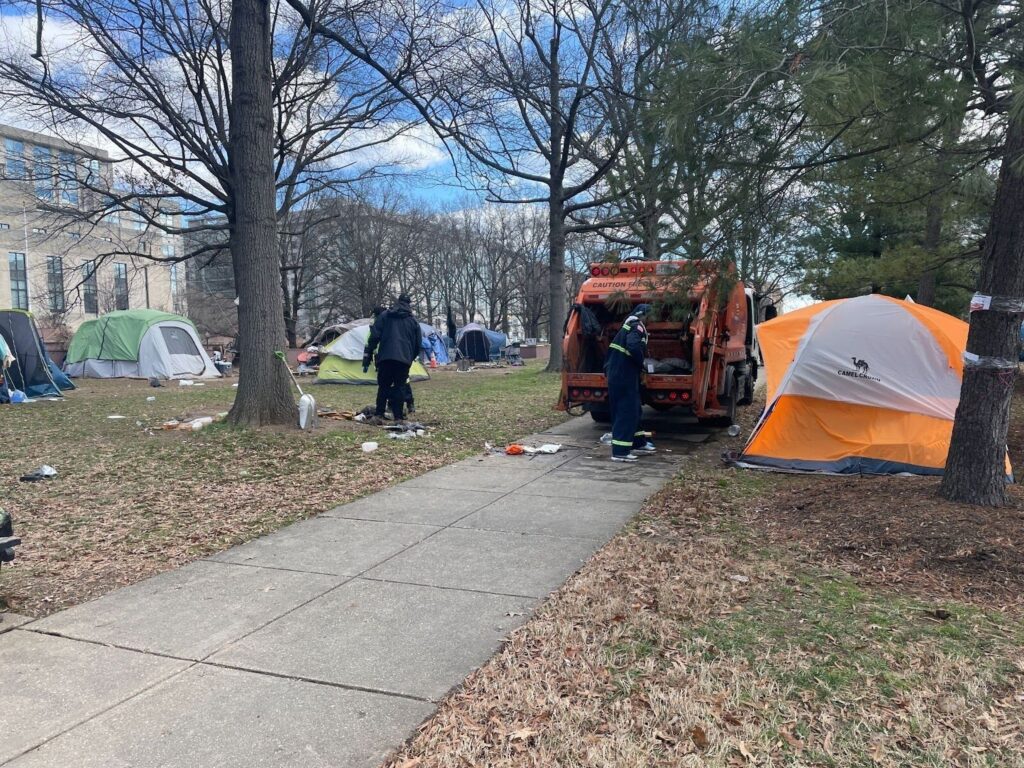Representative Dennis J. Kucinich (DOhio) was born in Cleveland, Ohio on October 8, 1946, the eldest of seven children. He grew up in Cleveland’s inner city where his father was frequently unemployed and his family coped with homelessness. He earned a B.A. and M.A. at Case Western Reserve University. He began a distinguished public service career as a 21-year old Councilman and later as Cleveland’s Mayor. In 1994 Kucinich was elected to the Ohio State Senate and the U.S. Congress in 1996 (re-elected 1998, 2000, and 2002). As chair of the Congressional Progressive Caucus, he “advocates for a national health care system, the preservation of Social Security and higher unemployment benefits”. Public Citizen, the Sierra Club, Friends of the Earth, and the League of Conservation Voters honored him for his environmental record. He is the 2003 recipient of the Gandhi Peace Award.
Kucinich is one of nine candidates vying for the Democratic nod to run for President of the United States. He was interviewed by Muata Jordan Langley for Street Sense.
Street Sense: Let me first offer congratulations to you on being named 2003 recipient of the Gandhi Peace Award. Why were you honored?
Rep. Dennis Kucinich: Thank you. This is an award that is one of the major peace prizes in the country. I am grateful to have received it. The first recipient was Eleanor Roosevelt. I suppose a lot has to do with a proposal in the Congress to create a cabinet level position in the Department of Peace. The Department of Peace seeks to make nonviolence an organizing principle in our society for domestic policy as well as international policy. Now, about fifty members of Congress support it.
SS: I understand that in your lifetime you experienced homelessness while living with your parents. Is this true?
Kucinich: My folks never owned a home. We moved around a lot and by the time I was seventeen we lived in 21 different places including a couple of cars. We experienced evictions and some of the other experiences that are not uncommon to inner-city families. Because of that, I’ve come to have a special sensitivity to the concerns of people for affordable housing and the concerns of homeless people.
SS: We are in an era where there seems tobe increasing homelessness due to the economy and public policy. Can you talk a bit about what you see the political landscape looking like?
Kucinich: It is up to society to provide opportunities for people and to take care of its people. No one in a democratic society should be without a home. Unless you are looking at a home as being some kind of privilege, which you get according to the economic value, which you represent, in the economy. I think having a roof over your head is a basic human right. The gospel of St. Matthew tells us when we shelter someone that’s a work of mercy. That identifies us with something that spiritually is very powerful. We have an obligation to see to it that people have shelter and people have opportunities for survival. That is the way I look at it. I think the government has a special role to provide affordable housing and education.
SS: In a speech you talked about there being two Americas – one “multinational” and one of “neighborhoods and rural areas”. What do you mean by this? And, how does it relate to democratic values, policies, and principles of the nation?
Kucinich: Global corporations have one goal and that is to maximize profit. If they need to cut people’s wages to maximize profit – they’ll do it. If they need to bypass environmental regulations to enhance their profits – they’ll do it. If they need to engage in slave labor, prison labor, or child labor in order to increase their profits – they’ll do it.
Global corporations are not about human dignity they are about making profit. Now, there are some people in management who have a conscious. But the overriding direction of corporate globalization is about profit at the expense of worker’s rights, human rights, and environmental quality principles.
SS: There are inequities in income and living standards between the rich and poor, and they have widened substantially. Does this explain this phenomenon of multinational corporations?
Kucinich: No, actually, it does not. The multinational corporations have gained their strength through the failure of government to provide sufficient regulation of corporate activity to break up the monopolies in order to ensure more competition and to provide trade laws which give nations and people protection of their basic rights. So, there is nothing wrong with people making money. I think it is a wonderful thing and we all need to have an opportunity to have a sense of mastery over this material world. That can become a very spiritual process. But what happens when the game is rigged? What happens when someone gets a benefit because of political connections? What happens when someone can achieve a monopoly because they don’t have to worry about who is in power looking over their shoulder? And, what happens when someone can set up a corporation and export their profits offshore at the expense of the American taxpayer? What happens when you have conditions where the economy exists just to benefit a few and not the many?
SS: What would be your message to the growing homeless population and the people who are their supporters and organizers?
Kucinich: The same message that is on the Statue of Liberty: “Give me your tired, your poor, your huddled masses yearning to breathe free.” We have to bring close to the bosom of America those who have suffered from a lack of housing opportunities. By providing not just shelters on an interim basis but by providing affordable housing and by providing jobs for people.
We need to make sure that people are paid a living wage so that they can have the opportunity to own a home and make a down payment. These are the kind of things that are essential in a democracy, and the more that people lack those opportunities- the more our democracy is in trouble.
I see the level of homelessness as a gauge of how free we truly are. As wealth concentrates at the top and more people are thrown out of their homes, we really becomes less and less of a democratic nation.







